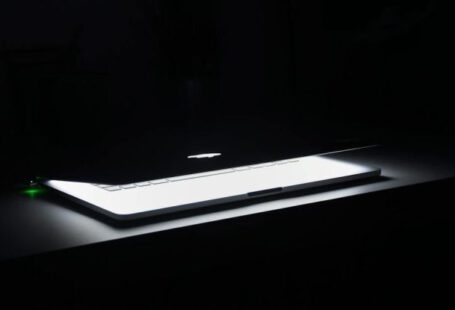In today’s digital age, where speed and efficiency are paramount in our daily tasks, the choice of storage device for your computer can greatly impact your overall experience. Solid State Drives (SSDs) have revolutionized the way data is stored and accessed, offering faster read and write speeds compared to traditional Hard Disk Drives (HDDs). However, the question remains – are budget SSDs still fast enough for everyday use? Let’s delve into this topic and explore whether opting for a budget-friendly SSD compromises on performance.
The Evolution of SSD Technology
SSDs have come a long way since their introduction, with advancements in technology leading to improved performance and reliability. Initially, SSDs were considered a luxury item due to their high cost per gigabyte compared to HDDs. However, as technology has progressed, the price of SSDs has significantly decreased, making them more accessible to the average consumer.
One of the key factors that determine the speed of an SSD is the type of NAND flash memory it utilizes. SLC (Single-Level Cell), MLC (Multi-Level Cell), TLC (Triple-Level Cell), and QLC (Quad-Level Cell) are different types of NAND flash memory, each offering varying levels of performance and durability. Budget SSDs typically use TLC or QLC NAND flash memory, which may not be as fast or long-lasting as higher-end SLC or MLC SSDs but still provide a significant speed boost compared to HDDs.
Speed and Performance of Budget SSDs
When it comes to everyday tasks such as booting up your system, opening applications, and transferring files, budget SSDs are more than capable of delivering a noticeable improvement in speed compared to HDDs. The faster read and write speeds of SSDs result in quicker load times and improved system responsiveness, making your overall computing experience smoother and more enjoyable.
While budget SSDs may not match the speed of premium SSDs in benchmarks and intensive workloads, the difference in real-world usage is often negligible for the average user. Tasks like web browsing, document editing, and multimedia consumption do not require the maximum performance that high-end SSDs offer, making budget SSDs a cost-effective choice for everyday computing needs.
Factors to Consider When Choosing a Budget SSD
When selecting a budget SSD for your system, there are a few key factors to consider to ensure you get the best performance for your money. Capacity is an important consideration, as larger SSDs tend to offer better performance due to higher parallelism and overprovisioning. Opting for a reputable brand with a proven track record of reliability and customer support is also crucial to ensure the longevity of your SSD.
Additionally, checking the specifications of the SSD, such as the controller and cache size, can give you an idea of its performance capabilities. While budget SSDs may not excel in all areas compared to premium options, they still provide a significant boost in speed and efficiency that can enhance your computing experience without breaking the bank.
Are Budget SSDs Worth It for Everyday Use?
In conclusion, budget SSDs are still fast enough for everyday use, offering a significant improvement in speed and performance compared to traditional HDDs. While they may not match the top-tier performance of premium SSDs, budget options provide a cost-effective solution for users looking to enhance their system’s speed without overspending. By considering the factors mentioned above and choosing a reputable brand, you can enjoy the benefits of SSD technology without compromising on performance. So, if you’re looking to speed up your system and boost productivity, a budget SSD is definitely worth considering for your everyday computing needs.





